Are you staring at the scrambled spectacle of your Rubik’s Cube and wondering if those vibrant, twisty blocks could be more than just a frustrating pastime? Well, you’re onto something. Buckle up, friend, we’re about to dig into the exciting correlation between the Rubik’s Cube and the mysterious realm of human intelligence.
Does solving a Rubik’s Cube increase IQ? The straightforward answer is: yes and no. Engaging in puzzles like the Rubik’s Cube can enhance problem-solving skills, spatial reasoning, and memory — all aspects related to an individual’s intelligence quotient (IQ). However, it’s not a magic potion that’ll instantly jack up your IQ score.
You got the basic answer, but let’s not stop here. Grab a comfortable seat and join us as we delve deeper into this fascinating topic. There are a plethora of intriguing insights and research findings that link the brain-boosting prowess of Rubik’s Cube to cognitive enhancement. It’s a mind-bending journey you don’t want to miss.
The Rubik’s Cube: A Brief History
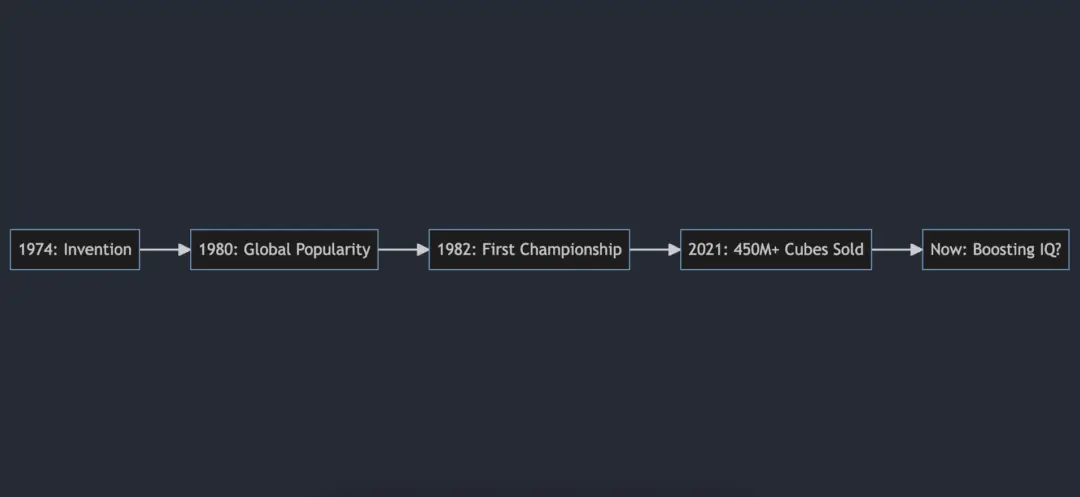
Look, folks, the tale of the Rubik’s Cube ain’t some flashy blockbuster. It’s more like a quiet drama, with its share of unexpected twists, kinda like those of its own 3D structure.
Invented by a Hungarian architect named Ernő Rubik in 1974, this little cube quickly scrambled its way into the hearts of millions. The man was on a mission, toying with the concept of movable parts on a solid cube, a mission that led him to create the most popular puzzle in the world.
Rubik, our protagonist, didn’t have an inkling of the phenomenon his invention would become. Imagine, he merely wanted a working model to help explain three-dimensional geometry. The cube was his Eureka moment in the classroom, but it didn’t take long before the rest of the world caught on to its charm. By 1980, the Rubik’s Cube had invaded living rooms globally.
Here’s a quick blast from the past. Check out the table below:
| Year | Milestone Event |
|---|---|
| 1974 | Ernő Rubik invents the Magic Cube |
| 1977 | The Cube gets a patent, renamed as the Rubik’s Cube |
| 1980 | Rubik’s Cube wins a German Game of the Year award |
| 1982 | First world championship, hosted in Budapest |
| 2021 | A whopping 450 million+ cubes sold worldwide |
And hey, if you’re still not impressed, consider this. The Rubik’s Cube ain’t just about twisting and turning. With 43 quintillion possible combinations, it’s a testament to the beauty of complexity arising from simplicity. Ain’t that something?
Now, that’s the backstory. But what about our main question: the Cube’s impact on IQ? Let’s dig in, shall we?
Decoding IQ: A Quick Primer
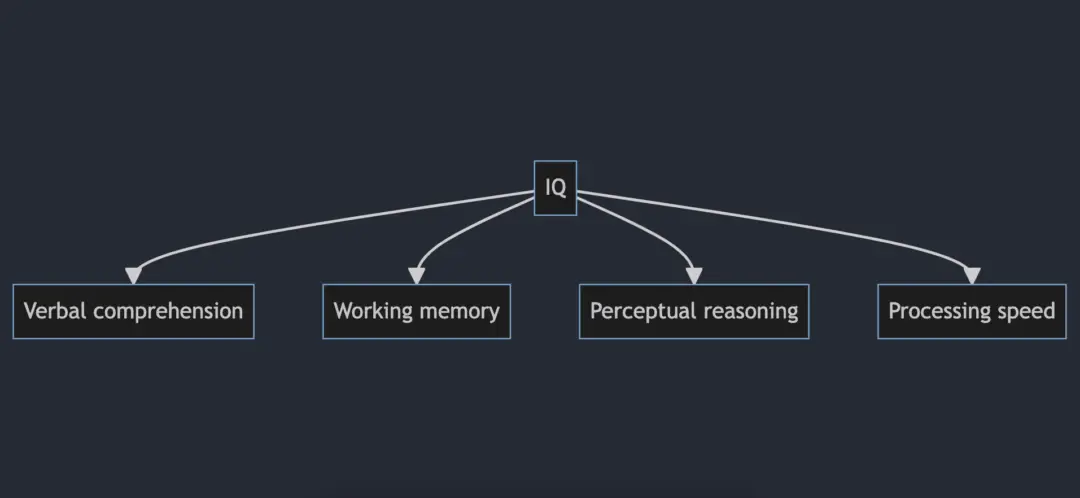
Now, before we start connecting our colorful cube to brainpower, let’s get a lay of the land. What in the world is IQ, anyway?
IQ, or Intelligence Quotient, is a measure folks use to assess human intelligence. It’s like a scorecard for your brain, derived from several standardized tests. And believe me, these ain’t your run-of-the-mill school quizzes.
Let’s not get carried away with the specifics, but essentially, IQ tests aim to measure a variety of mental abilities. These include problem-solving skills, memory, logical reasoning, and understanding of language, among other things.
For a quick look-see, here’s an outline of the different areas typically assessed in an IQ test:
- Verbal comprehension: understanding, interpreting, and connecting words.
- Working memory: the ability to hold and manipulate information in the mind over short periods.
- Perceptual reasoning: visual and spatial judgment and problem-solving.
- Processing speed: the rate at which the mind can handle and react to information.
Now, keep in mind, an IQ score ain’t the be-all-end-all of intelligence. It doesn’t measure creativity, emotional intelligence, wisdom, or a host of other qualities that make up a smart, savvy individual. But it’s a tool, a snapshot of where you’re at cognitively.
Time to switch gears. Buckle up, ’cause we’re about to venture into how the Rubik’s Cube fits into this cognitive jigsaw.
Rubik’s Cube and Cognitive Skills: The Connection
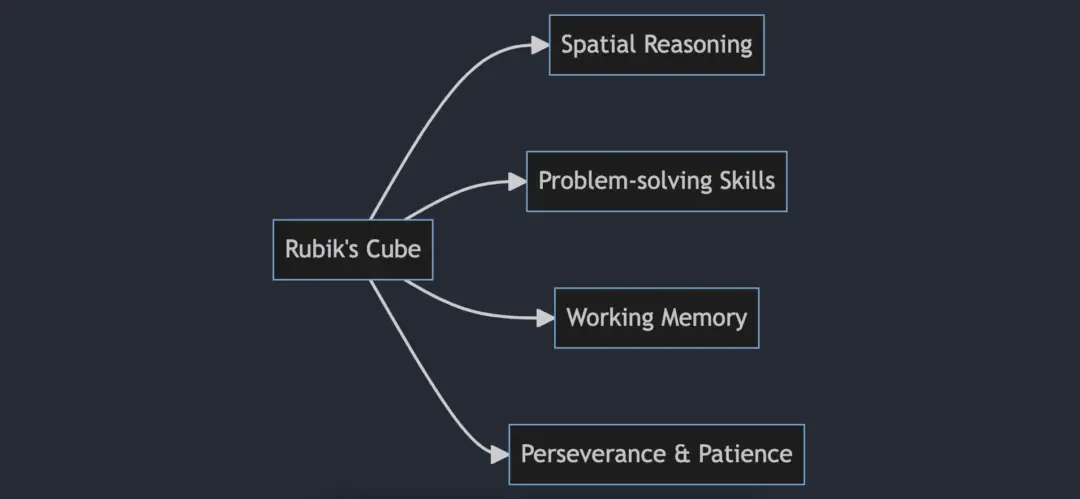
So, you’ve got your hands on a Rubik’s Cube and you’re wondering, “How’s this technicolor devil gonna make me smarter?” Well, stick with me, amigo, and let’s crack this case wide open.
First, let’s talk about spatial reasoning. The moment you pick up that cube and give it a whirl, you’re stepping into the 3D realm. The goal is to align the colors on all sides, right? That’s spatial reasoning at work. You’re visualizing, strategizing, and turning the cube in your mind even before your fingers start to move. It’s like giving your brain a personal gym membership.
Second up, we have problem-solving skills. Each twist, each turn, every move you make on that cube, it’s like walking through a mental maze. You’re not just reacting; you’re strategizing, and planning your next moves. And if that ain’t a lesson in problem-solving, I don’t know what is.
Let’s not forget working memory. To solve a Rubik’s Cube, you need to remember the current state of the cube, the algorithms, the steps you’ve already made, and the ones you plan to make. It’s mental juggling at its finest.
And the cherry on top? Perseverance and patience. Anyone who’s spent time with a Rubik’s Cube knows that solving it ain’t a sprint; it’s a marathon. And this ability to stick to a task, even when it’s tougher than a two-dollar steak, is a pretty valuable life skill, don’t you think?
So, to bring it back home, while the Rubik’s Cube might not directly pump up your IQ score, it sure as hell sharpens a whole range of cognitive skills. But don’t just take my word for it, let’s see what the folks in lab coats have to say.
Practical Benefits: How Rubik’s Cube Enhances Real-life Problem-Solving
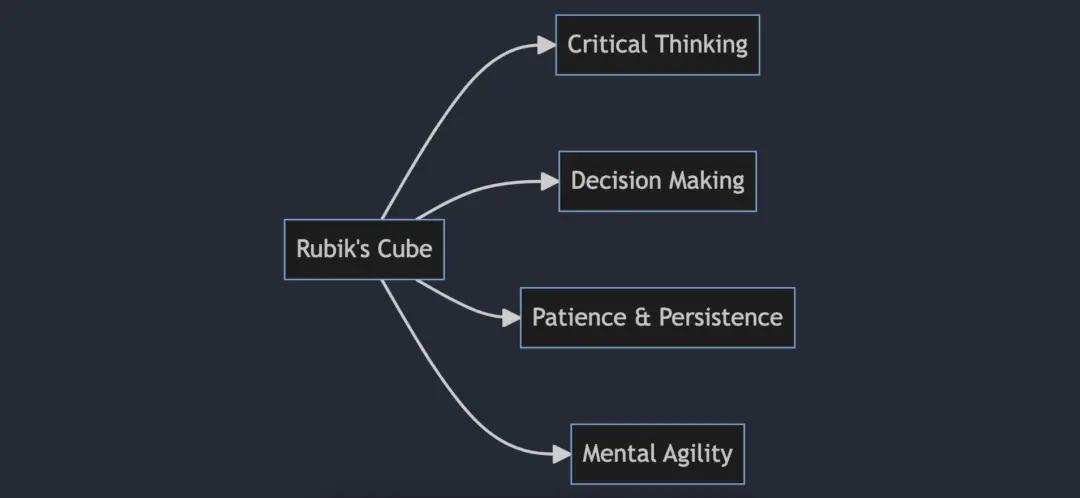
Alright, so we’ve seen the theoretical connections. But you might be wondering, “Hey, does solving this little puzzle actually help me in real life?” Good question, friend, and I’m glad you asked.
Here’s the thing — life ain’t a straight line. It’s more like a jumbled-up Rubik’s Cube. You’re constantly faced with problems that need solving, patterns that need understanding, and chaos that needs ordering. That’s where our little multicolored companion comes in handy.
- Critical thinking: The Rubik’s Cube ain’t just about algorithms. It’s about understanding the why behind these algorithms. It teaches you to approach problems methodically, to consider different angles, and to think critically.
- Decision making: In a Rubik’s Cube, every turn counts. It’s about making decisions, weighing the pros and cons, and living with the consequences. Sounds a lot like life, doesn’t it?
- Patience and persistence: The cube teaches you the importance of not giving up when things get tough. It’s a physical reminder that with patience, perseverance, and consistent effort, you can solve seemingly impossible puzzles.
- Mental agility: Solving a Rubik’s Cube requires you to think fast, especially if you’re trying to beat a personal best or compete with others. This can help increase your mental speed and flexibility, not just in cubing but in other aspects of life as well.
So yeah, while it might not be a direct ticket to becoming the next Einstein, playing with a Rubik’s Cube sure does offer a ton of practical benefits. And hey, if it can help you navigate this wild ride we call life, that’s a win in my book.
Tips to Use Rubik’s Cube for Cognitive Enhancement
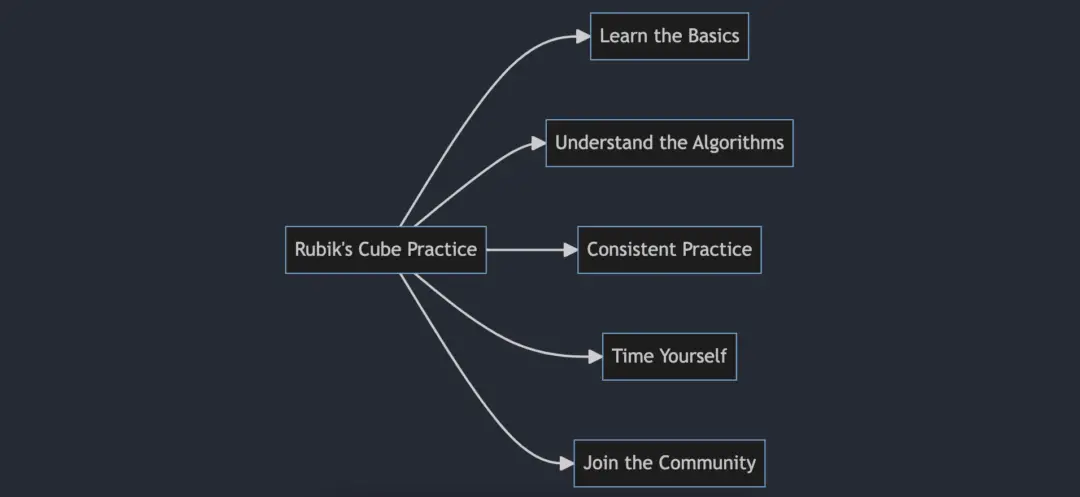
So you’re ready to dive in, ready to wrestle with the Rubik’s Cube and squeeze out all the cognitive juice it’s got to offer? Well, hats off to ya! Here are some tips to help you make the most of your twisting, turning journey:
- Start with the basics: Don’t just dive in and start twisting. Take a moment to understand the mechanics of the cube. Learn the notation. Understand what the center, edge, and corner pieces are. A solid foundation will set you up for success.
- Learn the algorithms: Rubik’s Cube solving is all about algorithms. Don’t be scared by the fancy term; it’s just a series of moves that achieve a specific result. Start with simple ones and gradually move on to more complex algorithms as you get comfortable.
- Practice makes perfect: The more you practice, the better you’ll become. Make it a point to solve the cube at least once a day. This will not only improve your speed and proficiency but also strengthen your memory and cognitive skills.
- Time yourself: Use a timer to track how long it takes you to solve the cube. This will help you see your progress over time and motivate you to get better.
- Join the community: There are numerous online communities and forums for Rubik’s Cube enthusiasts. Joining these can provide you with valuable tips, tricks, and advice to improve your solving skills.
Now, remember, the Rubik’s Cube ain’t just a toy. It’s a tool. A tool for fun, for sure, but also a tool for cognitive development. So go ahead, pick it up, give it a twist, and see where it takes your mind.
Conclusion
So, does the Rubik’s Cube increase IQ? While it might not directly pump up your IQ points, it sure as hell sharpens a bevy of cognitive skills. From spatial reasoning to working memory, from problem-solving to persistence, it’s a mental workout packed into a 3×3 cube.
And hey, the beauty of the cube ain’t just about what it can do for your brain. It’s also about the thrill of the solve, the joy of cracking the code, and the satisfaction of making order out of chaos. So whether you’re a cubing newbie or a seasoned speedcuber, keep on twisting. Your brain will thank you for it.
